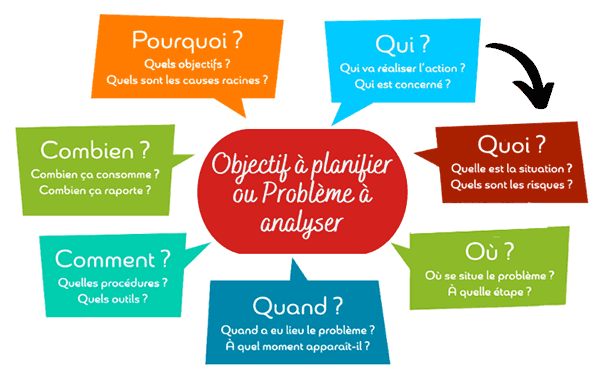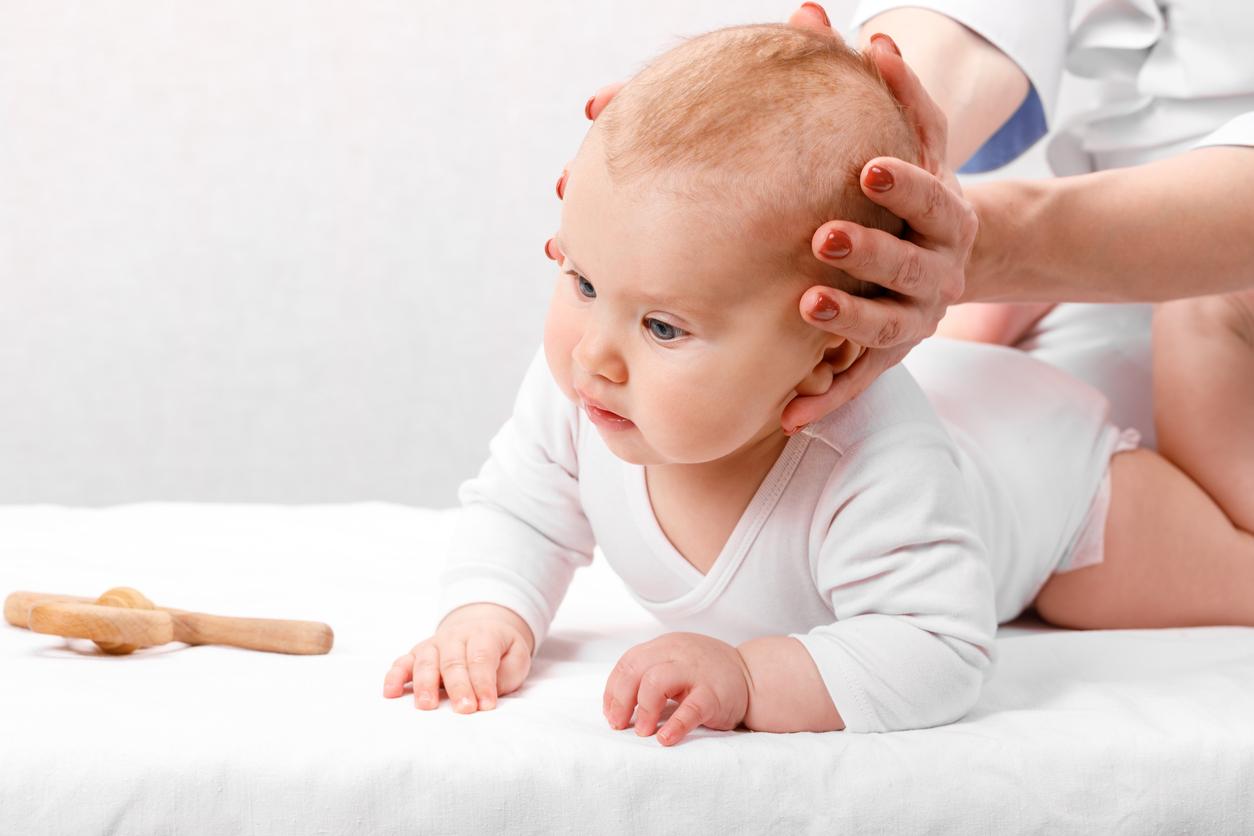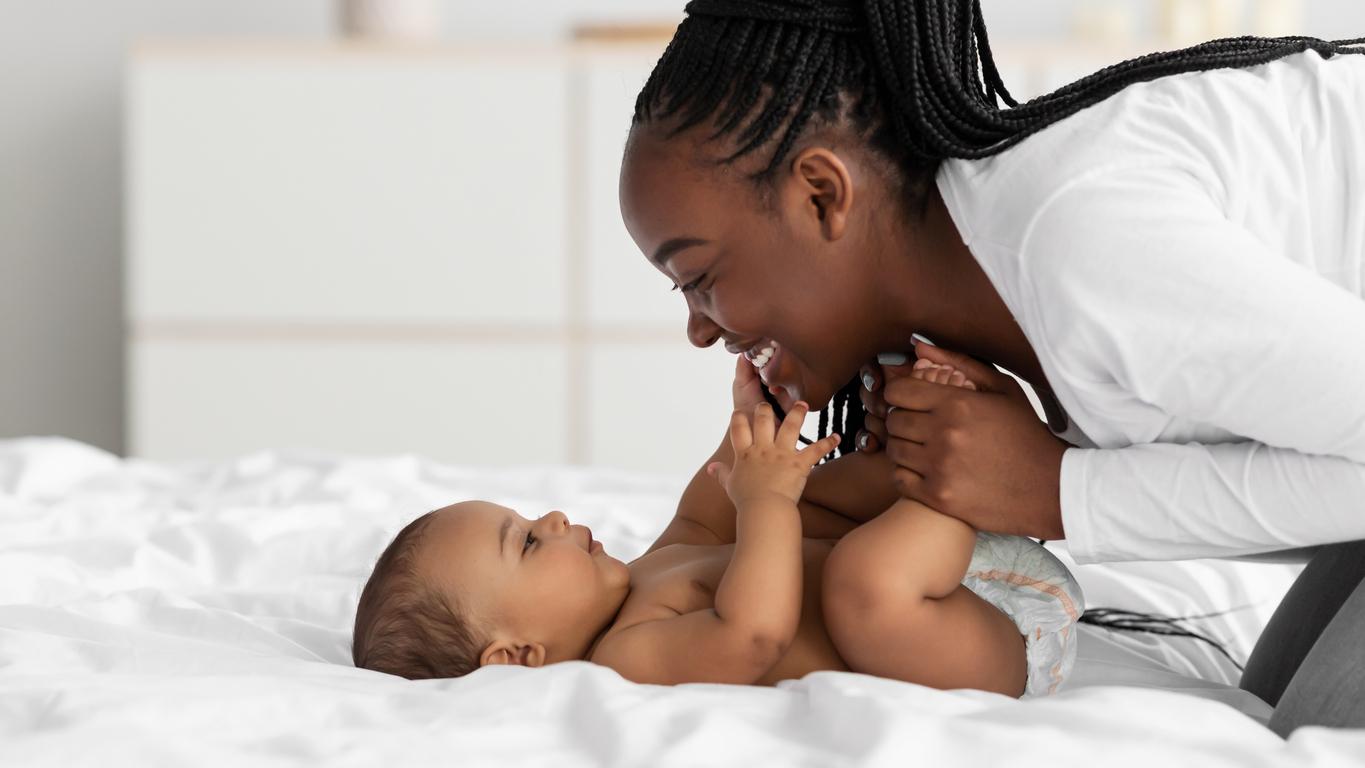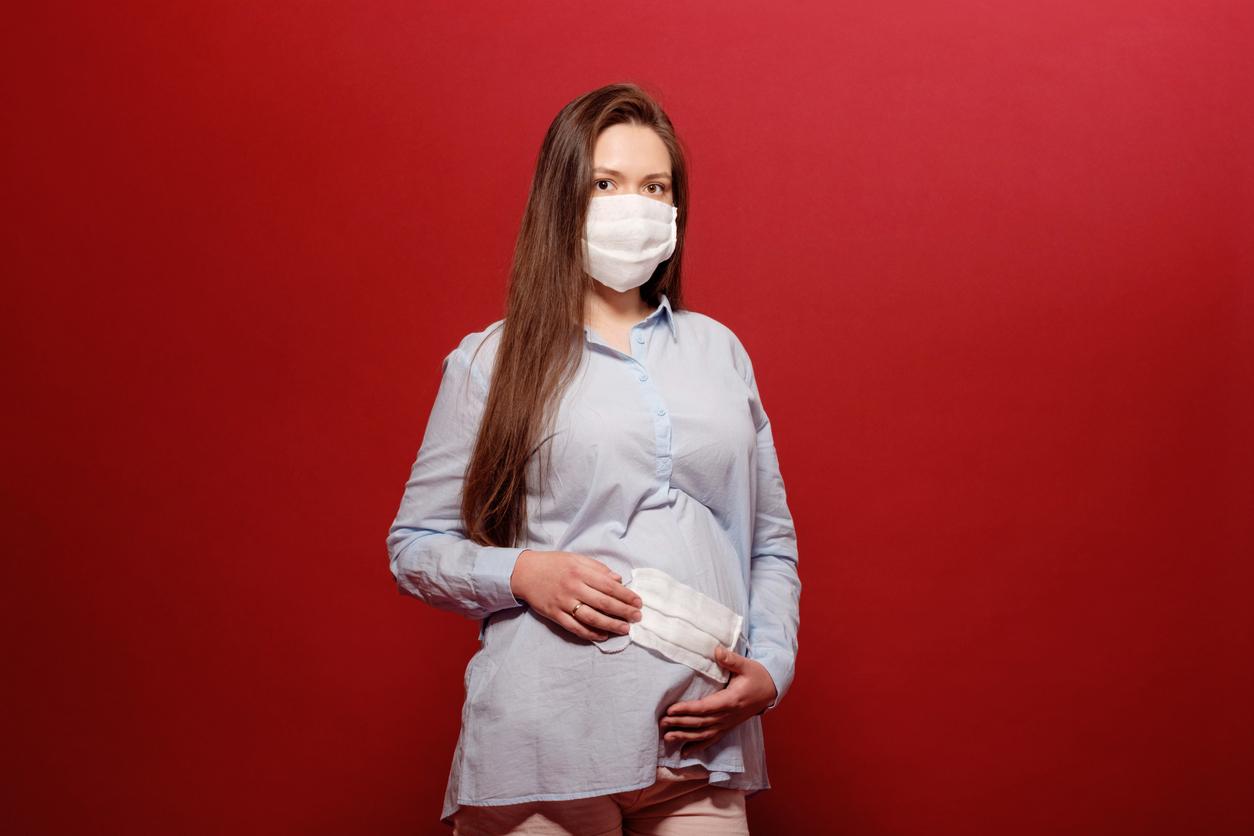Children born during the Covid-19 epidemic have poorer communication skills than others due to social isolation caused by lockdowns and other health measures.
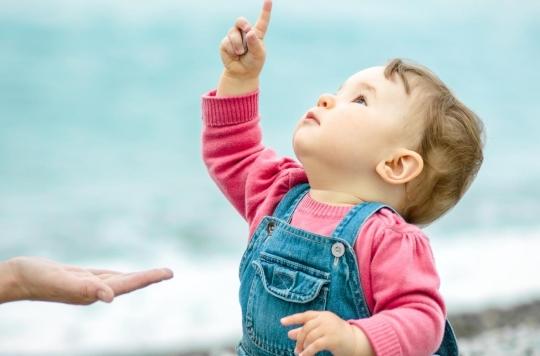
- A baby usually starts walking at 12 months, climbing stairs at 18 months and running well at 2 years old.
- A child who has few words can usually understand a lot.
Wearing a mask, confinements, barrier gestures… Infants born during the first waves of the pandemic “have not had the opportunity to have a normal social circle and to meet people outside the family home”, according to researchers from the Royal College of Surgeons in Ireland. The latter wanted to know if the various restrictions put in place during the epidemic had had an impact on the learning abilities of young children. For this, they carried out a study, the results of which were published in the journal Archives of Disease in Childhood.
10 developmental criteria assessed in babies born during the pandemic
In order to carry out their work, the scientists assessed 10 developmental parameters reported by the parents of 309 babies born at the start of the pandemic. The criteria reported during an assessment performed when the infants were 12 months old. The team compared the data collected with those of children born in Ireland between 2008 and 2011.
The 10 developmental criteria included the ability to crawl, walk along furniture, stand on their own, pick up small objects with thumb and forefinger, stack bricks, feed themselves with fingers, know their own name, say a definite and meaningful word, point to objects and wave goodbye.
The pandemic disrupted the social development of infants
According to the results, the babies born during the confinement seemed to have certain deficits in terms of social communication. At the age of one year, children born during the pandemic were more likely to be able to crawl (97.5% versus 91%), but fewer were able to express a defined and meaningful word (77% versus 89%), pointing (84% vs. 93%) and waving goodbye (88% vs. 94.5%).
The work indicated that social isolation due to the epidemic may have reduced the repertoire of heard language and the sight of unmasked faces. According to the authors, younger children fix their caregiver’s eyes during interactions, while older children tend to shift their gaze from the eyes to the mouth. Toddlers born during the pandemic also had fewer opportunities to see new objects, which might prompt them to point, and to meet other people who would help them learn how to greet.
“Babies are resilient and inquisitive by nature, and it is very likely that as society reappears and social circles increase, their social communication skills will improve. However, they will need to be monitored until l school age to be sure”, concluded the scientists.



